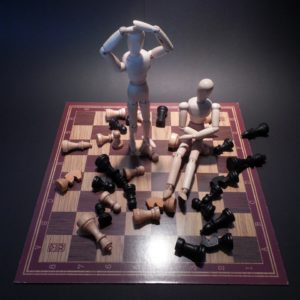Have you ever wondered if you have the right leadership traits?
Me too.
Here are some leadership traits I’ve heard over my career.
- Be highly knowledgeable. (knowledge is power).
- Put in the time.
- Do the due diligence.
- Be a strong decision maker.
- Have charismatic personality.
- Be an extrovert.
- Have a strong moral foundation.
- Be willing to do anything to get it done.
- Have great sales skills.
- Measure what you want.
After diving into questions about leadership traits over the last few years I’ve had the opportunity to get training, get coached, and work with lots of organizational leaders as a business coach. And I gage these against my experiences in C-roles.
Leadership traits and culture
Are excellent leadership traits culturally based? That is, focus on cultural aspects of an organization as a goal.
“Culture is not the culprit” by Jay W. Lorsch and Emily McTague, Harvard Business Review, point out that creating the “right environment” and “culture as the cause and the cure” for business ills is NOT the answer.
“Rather, in their experience, cultural change is what you get after you’ve put new processes or structures in place to tackle tough business challenges like reworking an outdated strategy or business model. The culture evolves as you do that important work.”
So they dove into an analysis of five business leaders who effectively changed their companies with vastly different styles and styles.
Doug Baker, CEO or Ecolab, had a vision to restore customer focus as a core strength at Ecolab and used frontline decision making and meritocratic reward system to achieve results.
Richard Anderson, CEO of Delta, started with a clear set of goals and purpose and then used shared executive power, direct relationships with employees, accommodating workplace development and compensation needs.
Alan Mulally, former CEO of Ford, started with assessments of performance against goals increasing transparency and streamlining business processes.
Dan Vasella, former CEO of Novartis, articulated a clear vision, goals and expectation and decentralized decision making.
It turns out they all shared some key leadership traits.
Just for fun, add in another HRB article, “a 10 year study reveals what great executives know and do” an article by Ron Carucci, Jan 19, 2016.
7 Leadership Attributes you need
Carucci describes 4 key attributes of a great leader who change their organizations to what they want.
- They know the whole business. Not just the sales, marketing, finance, engineering, support function they happened to rise through. They quickly encompass all functions of an organization. “They focus on strengthening the organization’s seams.” They break down the divisions and silo mentality within an organization.
- They are great decision makers. They can ” declare their views, engage others’ ideas, analyze data for insights, weigh alternatives, own the final call, and communicate the decision clearly. They are good prioritizers. They balance instinct and analytics.”
- They know their industry. They have “contextual intelligence.” They have “innate curiosity and deep knowledge of their business context which they apply to wider economic, technological, and customer trends.”
- They form trusting relationships. They ” form deep connections with superiors, peers, and direct reports, studying and meeting the needs of key stakeholders. They communicate in compelling ways. They invest heavily in their own emotional and social intelligence. They reach beyond superficial transactions to form mutually beneficial, trusting relationships.”
I would add…
- They are curious. They are curious about their industry, their customers, their team, their capabilities and weaknesses. They ask open questions and listen more than talk. They do their homework.
- They do the work to know and accept themselves. They are on a constant self-improvement mission both personally and professionally. They develop the balance needed for the long game. They know they can’t do it alone. They need someone with vested interest in their success like a business coach.
- They over communicate their values, vision, goals for the organization to employees, partners, customers, prospects, vendors, stakeholders.
Leadership traits can be learned
Carucci points out these can be learned. Start with goals of where you have most impact. Start learning and developing new skills.
Excellent Leadership traits can be learned.
Excellent leadership traits are not tied to a personality type or style. They are tied to skills. Skills are developed over time, just like learning a new language, learning golf, or skiing. You don’t take a class or read a book or listen to a Ted talk and “know it.” Those are needed but not nearly enough.
The point of developing leadership traits is about skills. It is NOT knowledge. It is skillfully applied knowledge.
A clear assessment of strengths and talents, weaknesses and blind spots can give a strong foundation from which to build skills.
Understanding what you value, what you want, and why are all crucial. Each of the 4 leaders in “Culture is not the culprit” article were clear about their values, vision and goals.
 Now what?
Now what?
Want to talk through some ideas?
Give me a call at 503-753-9971 or email me at Phil@PhilBride.com. Let’s set up complimentary 20 minutes to talk through what’s on your mind.
Get moving today with a solid plan to develop the leadership traits you need.
Helping Leaders Breakthrough
“Dominate your life with Focus, Decision and Execution.”











